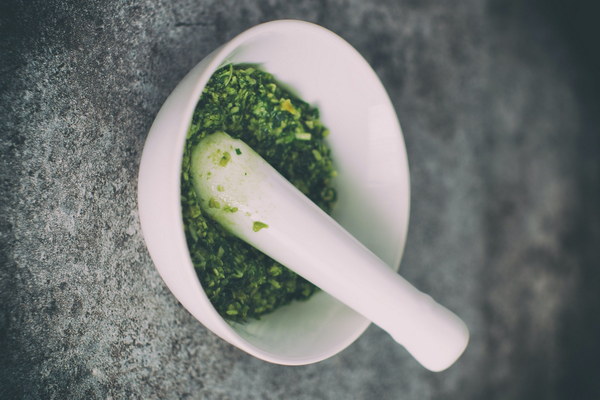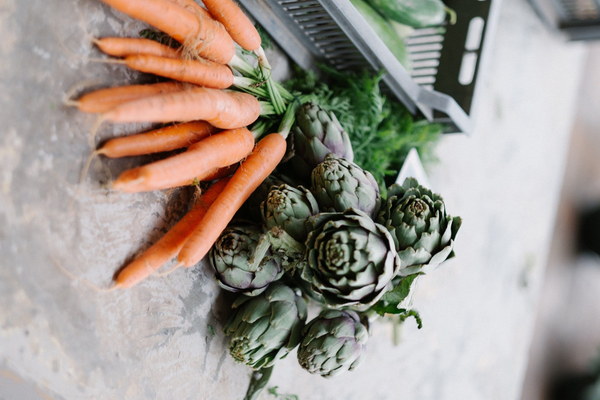Swift Postpartum Recovery for Sows A Comprehensive Guide to Boosting Qi and Blood
Introduction:
Postpartum recovery is a critical period for sows, as it directly impacts their health, reproductive performance, and overall well-being. Ensuring that sows receive adequate nutrition and care during this time is essential for their swift recovery and the health of their offspring. In this article, we will explore effective strategies to boost Qi and blood in postpartum sows, enabling them to recover quickly and efficiently.
I. Understanding the Importance of Qi and Blood in Postpartum Recovery
1. Qi and Blood: The foundation of life

In traditional Chinese medicine (TCM), Qi (vital energy) and Blood are considered the fundamental substances that maintain the body's health and vitality. During pregnancy and childbirth, sows consume a significant amount of Qi and Blood to support the development of their offspring. As a result, postpartum recovery involves replenishing these vital substances to ensure the sow's health and reproductive capabilities are restored.
2. Postpartum weakness and its consequences
Postpartum weakness, characterized by a deficiency of Qi and Blood, can lead to a range of health issues in sows, such as decreased milk production, reproductive disorders, and increased susceptibility to diseases. Therefore, addressing this deficiency is crucial for the sow's recovery and the well-being of her offspring.
II. Nutritional Strategies for Postpartum Recovery
1. High-quality forage and feed
Feeding sows a balanced diet rich in essential nutrients is essential for their postpartum recovery. High-quality forage, such as alfalfa or Timothy hay, provides a rich source of fiber, vitamins, and minerals. Additionally, a complete feed supplement should be provided to ensure the sow receives adequate protein, energy, and trace minerals.
2. Focus on vital nutrients
Specific nutrients are crucial for replenishing Qi and Blood in postpartum sows. These include:
- Iron: Necessary for the production of red blood cells and oxygen transport.
- Vitamin A: Essential for maintaining the integrity of the reproductive tract and immune function.
- Vitamin E: An antioxidant that supports tissue repair and overall health.
- Folic acid: Important for red blood cell production and fetal development.
- Selenium: A trace mineral that plays a vital role in immune function and antioxidant defense.
III. Management Strategies for Postpartum Recovery
1. Rest and relaxation
Allowing sows to rest and recover is crucial for their postpartum health. Provide a comfortable, clean, and quiet environment to help sows relax and conserve energy. Ensure that the pen is well-ventilated and at an appropriate temperature to prevent heat stress or chilling.
2. Monitoring and early intervention
Regularly monitor sows for signs of postpartum weakness, such as reduced appetite, decreased milk production, and reproductive disorders. Early intervention is essential to address any potential issues before they become severe. This may involve adjusting the diet, providing additional supplements, or consulting a veterinarian.
IV. Alternative Therapies for Postpartum Recovery
1. Traditional Chinese medicine (TCM)
TCM offers various herbal remedies and acupuncture treatments that can help replenish Qi and Blood in postpartum sows. These treatments are designed to address the root cause of postpartum weakness and promote overall health and well-being.
2. Homeopathic remedies
Homeopathic remedies can also be used to support postpartum recovery in sows. These natural treatments are based on the principle of like treats like and can help alleviate symptoms associated with postpartum weakness.
Conclusion:
Swift postpartum recovery is essential for the health and reproductive success of sows. By implementing a combination of nutritional, management, and alternative therapies, farmers can ensure that sows receive the care they need to recover quickly and efficiently. By prioritizing the replenishment of Qi and Blood, sows can return to their normal reproductive cycle and contribute to the sustainability of the pig farming industry.









